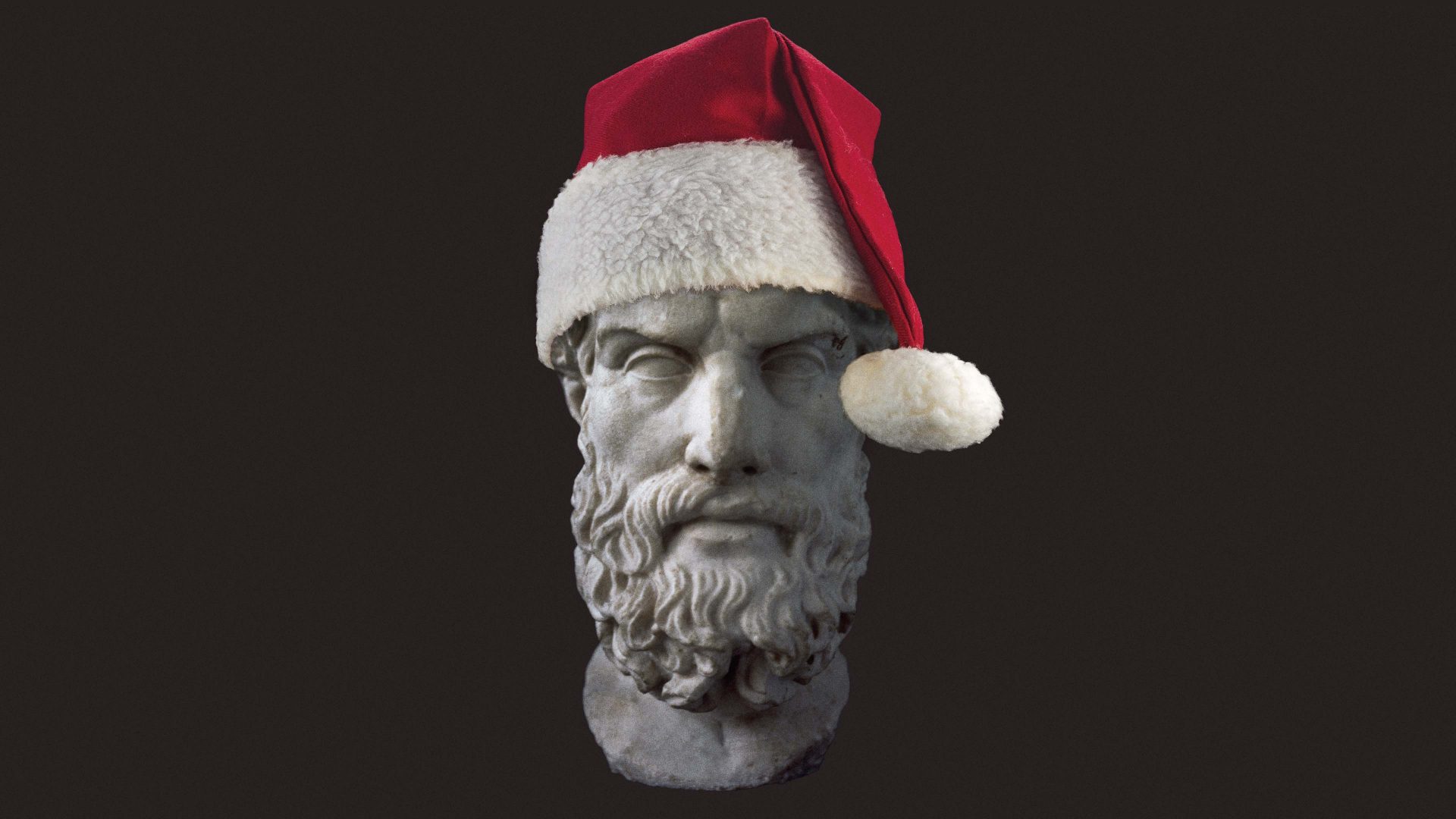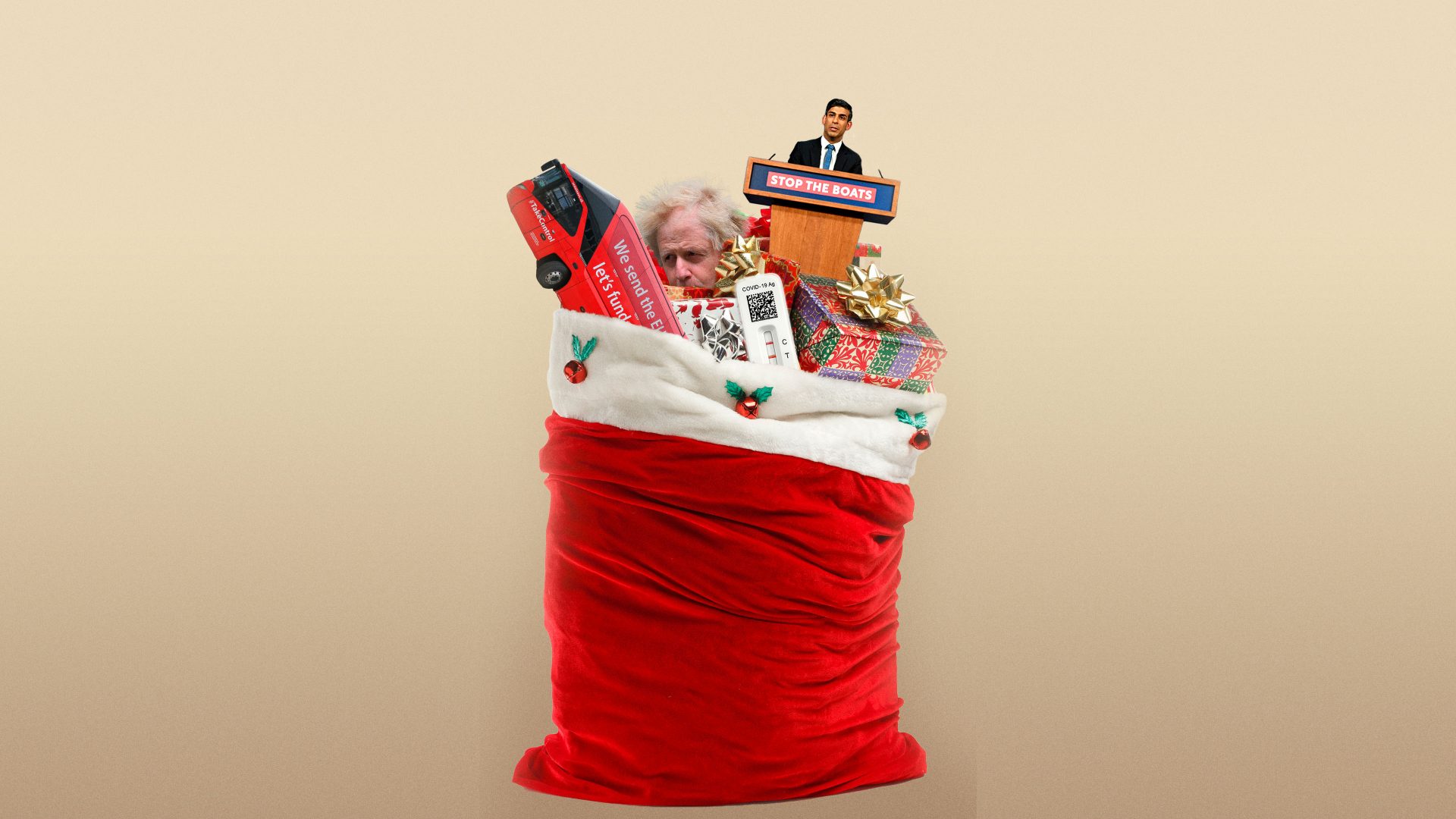Ludwig Wittgenstein once said, “I don’t know why we’re here, but I’m pretty sure it’s not in order to enjoy ourselves.” I wonder what he was like in the holiday season – probably a damp squib. For many, this is the time of year for parties and having fun. It’s a time for eating and drinking with friends and family: hedonism not abstinence, a time to enjoy life and the pleasures it offers. It’s also a time for generosity and giving, but perhaps that is at base motivated by the pleasure we get from these activities. Perhaps we only give because it makes us feel good.
Hedonism, the idea that enjoying pleasurable experiences, along with avoiding painful ones, is what matters most, has a long philosophical history, even if it isn’t one that would have appealed to Wittgenstein. There
are two aspects to this. First, the position known as psychological hedonism: this is the somewhat cynical view that human beings are only ever motivated by the pursuit of their own pleasure and the avoidance of pain. It’s an empirical question whether this is an accurate picture of what we are like. Then there are various forms of ethical hedonism, such as utilitarianism, which explain right and wrong in terms of their tendency to increase or reduce overall pleasure.
Epicurus, an Athenian philosopher who was born in the third century BCE, was one of the most important early thinkers to stress the significance of pleasure in understanding how we should live. He thought it was the source of all value. His hedonism had a major impact on subsequent philosophy, largely through the influence of the Roman writer Lucretius, whose On the Nature of Things passed on Epicurus’s conjectures about the universe, the gods, our fear of death, and how we should live. Epicurus believed the goal of life was pleasure.
He and his followers would meet in “The Garden”, a plot of land that Epicurus had bought. It was quite literally a space to think, but also a place to learn practically how to live a better life. Unusually, women were welcome to study here alongside men. Everyone was welcome. This was considered scandalous at the time, and some of Epicurus’s detractors assumed the women must be prostitutes. It’s tempting to believe that The Garden was a site for wild orgies with everyone maximising their sensual pleasure, but there is no evidence that that was so. It seems much more likely that the Epicureans lived a frugal lifestyle, sitting or walking outside, discussing the
nature of the universe and how we should live, enjoying mainly intellectual pleasures, and avoiding becoming entangled in the complex distractions of city life.
Epicurus was ahead of his time. He was a materialist in the sense that he believed everything was made up of tiny particles of matter too small to be seen that were in constant motion in the void. We would now call these atoms.
A consequence of this view was that at death, consciousness, which for him was a process of matter in motion, dissolved. The soul, which was physical, couldn’t survive death. From this it followed for Epicurus that we shouldn’t worry about our own deaths as we won’t have any conscious experience of them: when we are there, death is not, and when death is there, we are not. Nothing to worry about then. Those moving particles dissipate, and we vanish with them.
There is some irony in the fact that the word “epicurean” is now used to describe people who relish the sensual pleasures of eating fine food and drinking fine wine. The Epicureans themselves were more focused on avoiding the sorts of activities that detracted heavily from enjoyment in life, such as fear of retribution by the gods, or unfounded anxieties about death, than on the brief joys felt when consuming delicacies. They sought a calm life free from worry and believed that this could best be achieved by living
simply. Pleasure for them was the pleasure of tranquillity arising from the absence of pain and worry; they did not crave either the luxuries or the transient pleasures experienced by the aesthete or bon viveur.
Epicurus himself was very satisfied with a little bit of cheese and some
bread shared with friends. For the Epicureans, the pleasures of friendship were far superior to fine dining. As Epicurus put it:
“Friendship goes dancing round the world, announcing to all of us to wake
up to happiness.” That’s a far better motto for the holiday season than Wittgenstein’s.



